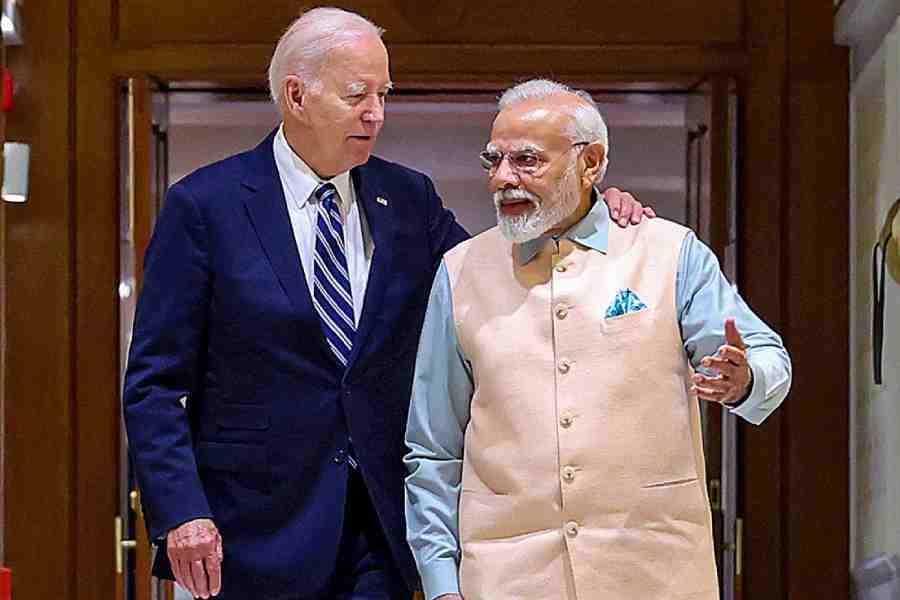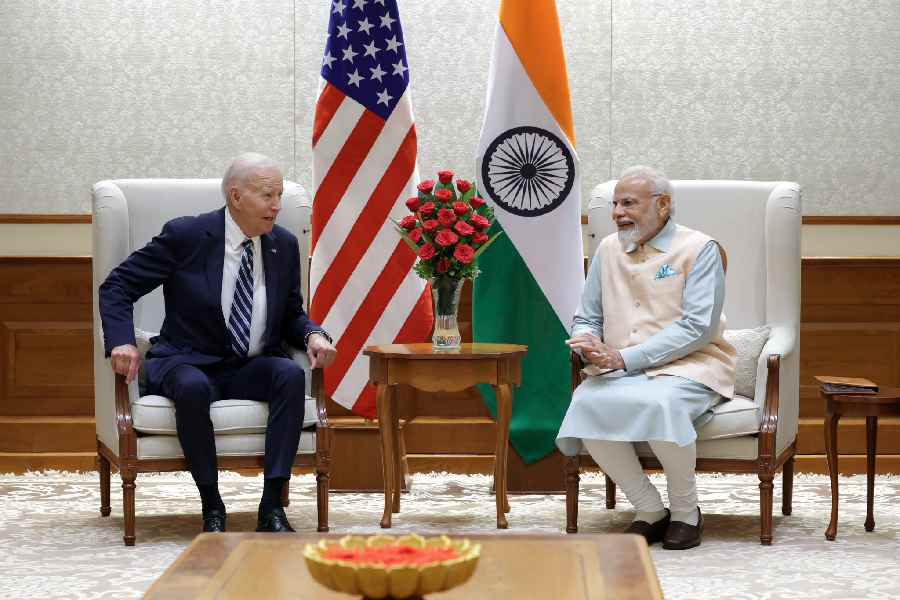Prime Minister Narendra Modi and US President Joe Biden had a one-to-one meeting here on Friday ahead of the G20 Leaders’ Summit beginning on Saturday, three months after their high-on-optics meeting in the White House in June.
A detailed joint statement was issued iterating India-US collaboration in various sectors including telecommunications, computer chips, cancer research, higher education, defence, supply chains and space, indicating efforts to build on the momentum achieved in June.
The statement included an almost perfunctory reference to democracy and human rights.
“The leaders re-emphasised that the shared values of freedom, democracy, human rights, inclusion, pluralism and equal opportunities for all citizens are critical to the success our countries enjoy and that these values strengthen our relationship,” it said.
Before the meeting, Biden’s national security adviser (NSA) Jake Sullivan had told accompanying journalists aboard Air Force One that the President “will also speak on critical, fundamental values that the United States stands for, as he does in all of his engagements”.
Asked how much of this message resonated in Modi’s case, the NSA refused to be buttonholed.
“I can’t characterise another leader’s perspective, and I’m not here to issue scorecards. What President Biden said when he was standing at the state visit earlier this year and what he will say in every significant leader engagement is what he believes and what the United States believes and what an American President stands for,” he said.
“That’s our responsibility. That’s what we do on behalf of our national values, who we are as a people, who we are as Americans. That’s what we’ll keep doing, and I’ll leave the scorekeeping to others.”
As indicated by the White House ahead of the visit, Biden lauded India’s G20 presidency for demonstrating how the forum is delivering important outcomes.
“The leaders reaffirmed their commitment to the G20 and expressed confidence that the outcomes of the G20 Leaders’ Summit in New Delhi will advance the shared goals of accelerating sustainable development, bolstering multilateral cooperation, and building global consensus around inclusive economic policies to address our greatest common challenges, including fundamentally reshaping and scaling up multilateral development banks,” he said.
Without divulging whether the G20 Sherpas had managed to iron out the rough spots and arrive at a consensus to be able to come out with an agreed document at the end of the summit, both India and the US articulated hope.
Asked whether the Ukraine conflict had the potential to derail the talks and the ability to arrive at a consensus, India’s G20 Sherpa Amitabh Kant said: “G20 is an economic forum, it discusses issues of growth and development.
“However, last year in Bali there was a feeling that issues of conflict and war have an impact on growth and development. So food, fuel and fertilisers get impacted and therefore that issue was discussed. This year also, this was discussed as a consequence of the war.”
Russia and China have been pushing back on any reference to the Ukraine conflict in the document on the premise that G20 is an economic forum and political issues should be kept out of it.
Sullivan refused to predict whether there would be a consensus once the leaders sat down with the document negotiated by the Sherpas.
“The United States is ready to do our part to deliver a joint statement, and we think there is a joint statement to be had. And the question is: Will every country step up, be responsible, be constructive? If the answer to that is yes, then we will get a joint statement. But it’s too soon to tell,” he said.












